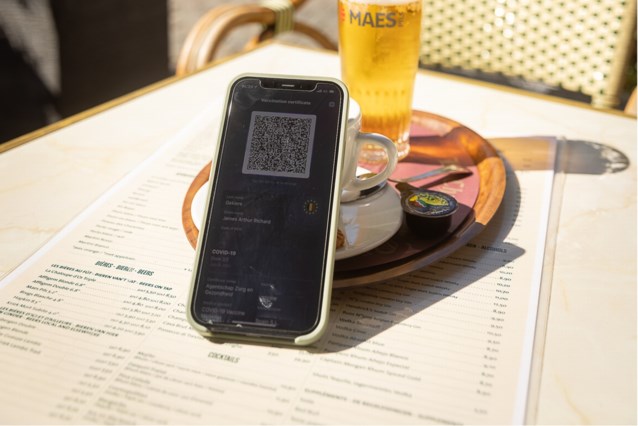The Brussels health authorities (Cocom) are seeing next to no effect of the upcoming implementation of the Covid Safe Ticket (CST) in several sectors from Friday on the Capital Region's vaccination rate.
While it was thought that the slight increase in first doses among young people was "a possible effect" of the CST, the number has dropped again over the past week, Cocom's Inge Neven said during a press briefing on Tuesday.
"I think [the effect] is as good as zero. When you see that the number of first doses went down a little bit last week, it means that there is no real mass influx due to the introduction of the CST," she said.
Additionally, there was "no significant increase" in reservations to get a shot in vaccination centres either, Neven says. "I think that effect is still a bit off, for now. We will see what it gives in the coming weeks."
Related News
- Brussels extends use of Covid Safe Ticket: here’s how
- 'Possible effect of Covid Safe Ticket': more Brussels young people want vaccine
- Half of Belgian employers want Covid Safe Ticket for staff
However, Neven stressed that the CST is mainly a health measure to keep the sectors running and make sure businesses can stay open.
"But of course, we also hope that there will be an effect on the vaccinations," she said, referring to the surge in vaccination appointments in France following the announcement that the 'pass sanitaire' (health pass) would be mandatory to enter bars, restaurants and museums.
A similar rise was registered in the Netherlands last month, where the announcement that it would introduce a Covid pass in the hospitality sector saw the number of people who got a first dose increase for the first time in weeks.
In Brussels, the scheme will come into force from Friday 15 October, meaning people will have to show a valid CST to prove that they are fully vaccinated, have recently tested negative or recovered from an infection in the past six months to enter bars, restaurants and residential care centres.
On Tuesday 12 October, 69% of the Brussels adult population already received a first dose, and 66% of adults is fully vaccinated, according to the latest figures by the Sciensano national health institute.

